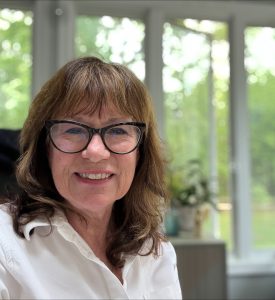
Understanding the Latest Lung Cancer Drugs
The world of cancer treatment is rapidly evolving. New therapies are being discovered, and existing ones have improved, resulting in better patient outcomes. Regional Cancer
HIPAA Alert: Potential Data Breach Learn More
Questions on Oncology, Hematology and/or Infusion Clinical Services due to COVID-19 Crisis – CALL 833-698-1623
Important Information for Our Patients Regarding the Coronavirus.
RCCA Providing Area Cancer Patients with Access to Care During Coronavirus Outbreak
RCCA Offering Patients Virtual Visits During Coronavirus Pandemic
Bhavesh Balar, MD, says that a dramatic increase in cancer treatment options and the prolonged survival those regimens are providing lend new urgency to an old challenge: effective communication between oncologists and their patients’ other physicians. “We have so many more therapies available to us for both solid tumors and blood-based malignancies than we did even 5 years ago,” says Dr. Balar, a board-certified medical oncologist and hematologist who practices in the Freehold, NJ office of Regional Cancer Care Associates (RCCA), one of the nation’s largest networks of oncology specialists.
“This is a wonderful development that allows us to individualize treatment to optimal effect, and has driven significant gains in survival. At the same time, however, many of these agents have mechanisms of action that may cause drug-drug interactions with medications a patient is taking for another condition, or may affect issues such as blood pressure control or blood glucose levels. As survivorship increases, and more and more people are living 10 years, 20 years, or more after a cancer diagnosis, we need to consider both the immediate and ongoing implications of a therapy. At RCCA, we take these factors into consideration when developing our treatment plans, and, as warranted, consult with our patients’ other physicians about the impact of treatment on the person’s overall health.”

May Abdo-Matkiwsky, DO, says that this commitment to communicating with colleagues arises from an appreciation of the frustration primary care physicians and other doctors can feel after referring patients to a cancer specialist and then not being kept informed of the person’s treatment plan or status.
“At RCCA, we’re available to our colleagues when they have a question or concern about a patient, or when one of their patients needs to be seen promptly by a cancer specialist,” says the board-certified medical oncologist, who practices at RCCA’s Sparta, NJ care center. “In addition to that initial availability, we pride ourselves on staying in close touch with our patients’ other doctors long after a patient has entered our care, and on communicating not only with the referring physician but also with the patient’s cardiologist, endocrinologist, family physician, or other provider,” she adds.
Dr. Balar explains that RCCA’s community-based approach to cancer care facilitates close collaboration with patients’ other physicians. “In many cases, we know those physicians well from practicing in the same hospital and from having numerous ‘shared’ patients over the years. Those doctors have my cell phone number, and can call me or text me on a HIPAA-compliant app whenever they have a question. It’s a much different dynamic than trying to contact an oncologist they’ve never met who practices at an academic medical center in New York or Philadelphia. The whole premise of RCCA is to give patients the ‘best of both worlds’ by providing access to the latest therapies, sophisticated diagnostics, and clinical trials in a nearby, conveniently reached care center. That focus on ready access also encompasses our colleagues’ ability to reach us without delay,” the physician says. Dr. Balar adds that in many cases, he and a patient’s other physicians are on the same electronic medical records (EMR) platform, enabling easy sharing of notes and updates. In other instances, he calls his colleagues to provide a status report or answer a question.
Dr. Balar adds that RCCA’s commitment to collaboration with other physicians includes seeing referred patients promptly, with newly diagnosed patients often seen the next office day or in some cases even the same day.
Even before seeing a new patient, an RCCA oncologist will often consult with the referring physician to identify what blood work and imaging studies should be ordered based on the colleague’s initial findings, Dr. Abdo-Matkiwsky says, adding that this step can significantly speed and streamline the care process. Similarly, Dr. Balar says that he routinely talks with referring physicians to obtain an in-depth understanding of the patient’s situation. “I just saw a woman referred to me with metastatic breast cancer. I immediately got on the phone with the breast surgeon who referred her, and was able to discuss her case in detail,” he explains.
“Patients get the best care when their doctors communicate and work together, and that’s what we do at RCCA,” Dr. Abdo-Matkiwsky says, adding that this philosophy guides the cancer specialists and other clinicians at all of RCCA’s 26 care centers throughout New Jersey, Connecticut, Maryland, Massachusetts, and the Washington, DC area.
Drs. Abdo-Matkiwsky and Balar are among more than 100+ cancer and blood disorder specialists practicing with RCCA. Those physicians treat the full range of solid tumors and blood-based cancers, as well as managing benign blood disorders.
RCCA physicians see more than 26,000 new patients each year and provide care to more than 245,000 established patients. They offer patients the latest in cutting-edge treatments, as well as access to a wide range of clinical trials.
RCCA care centers also provide infusion services to people with a number of non-oncologic conditions — including multiple sclerosis, Crohn’s disease, and rheumatoid arthritis—who take intravenously-administered medications.
To learn more about RCCA, call 1-844-346-7222 or visit RCCA.com.
RCCA held its 12th Annual Clinical Retreat in November 2024, providing a forum for RCCA staff to discuss research progress and strategy in the hematology and oncology space, updates on the latest treatments for breast, lung, and genitourinary cancers and multiple myeloma, and best practices for “time off treatment” with a BCL-2 inhibitor and BiTE treatments, from hospitals to outpatient clinics.
For more information or to schedule an appointment,
call 844-346-7222. You can also schedule an appointment by calling the RCCA location nearest you.

The world of cancer treatment is rapidly evolving. New therapies are being discovered, and existing ones have improved, resulting in better patient outcomes. Regional Cancer

The imaging tests were negative, but Elizabeth Whalen knew something was wrong. Having survived pancreatic cancer and breast cancer, the Cape May Court House resident was

When it comes to cancer, early diagnosis is a person’s best defense. Cancer cannot always be prevented, but early detection offers the best opportunity for

Regional Cancer Care Associates is one of fewer than 200 medical practices in the country selected to participate in the Oncology Care Model (OCM); a recent Medicare initiative aimed at improving care coordination and access to and quality of care for Medicare beneficiaries undergoing chemotherapy treatment.